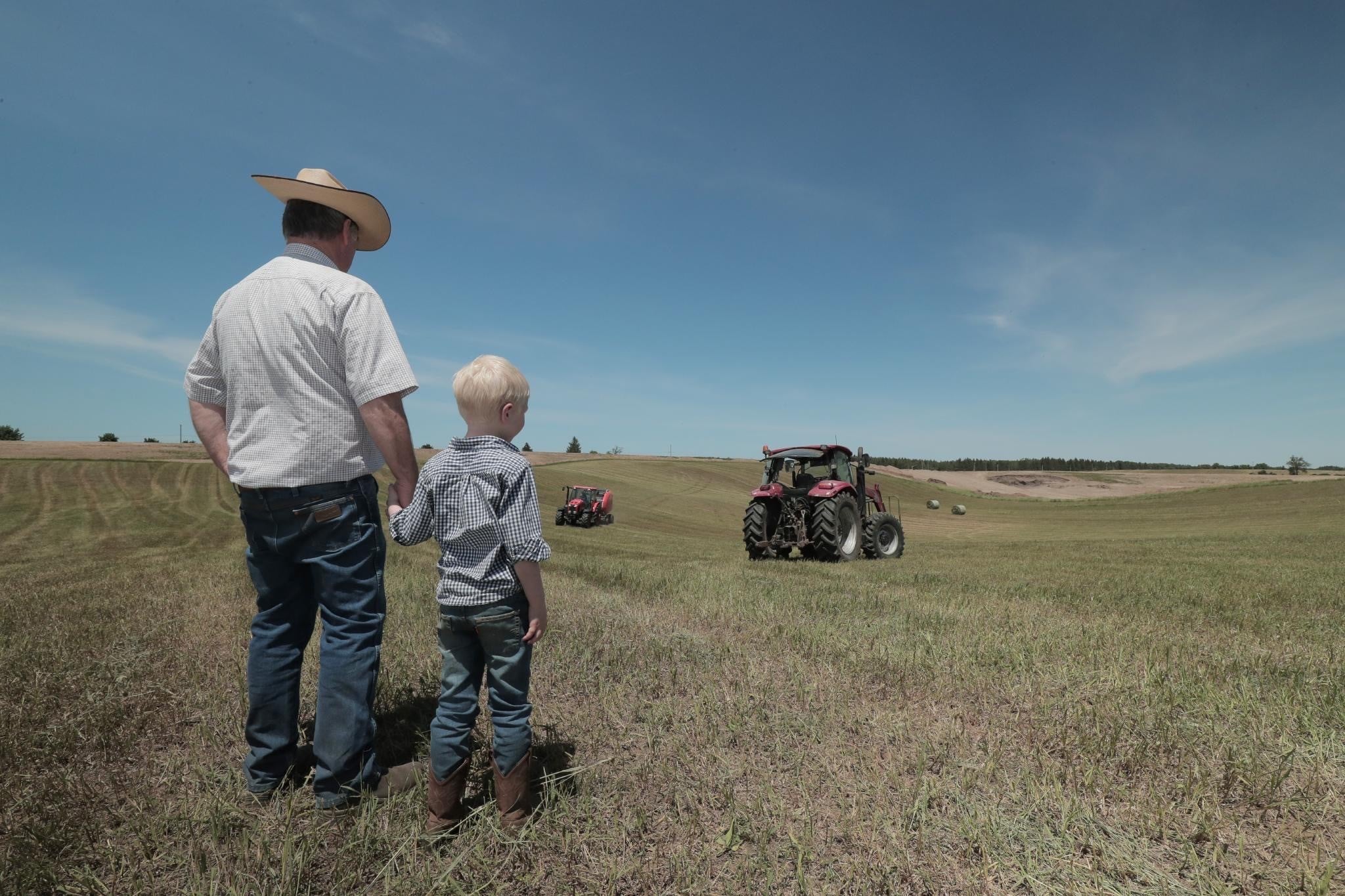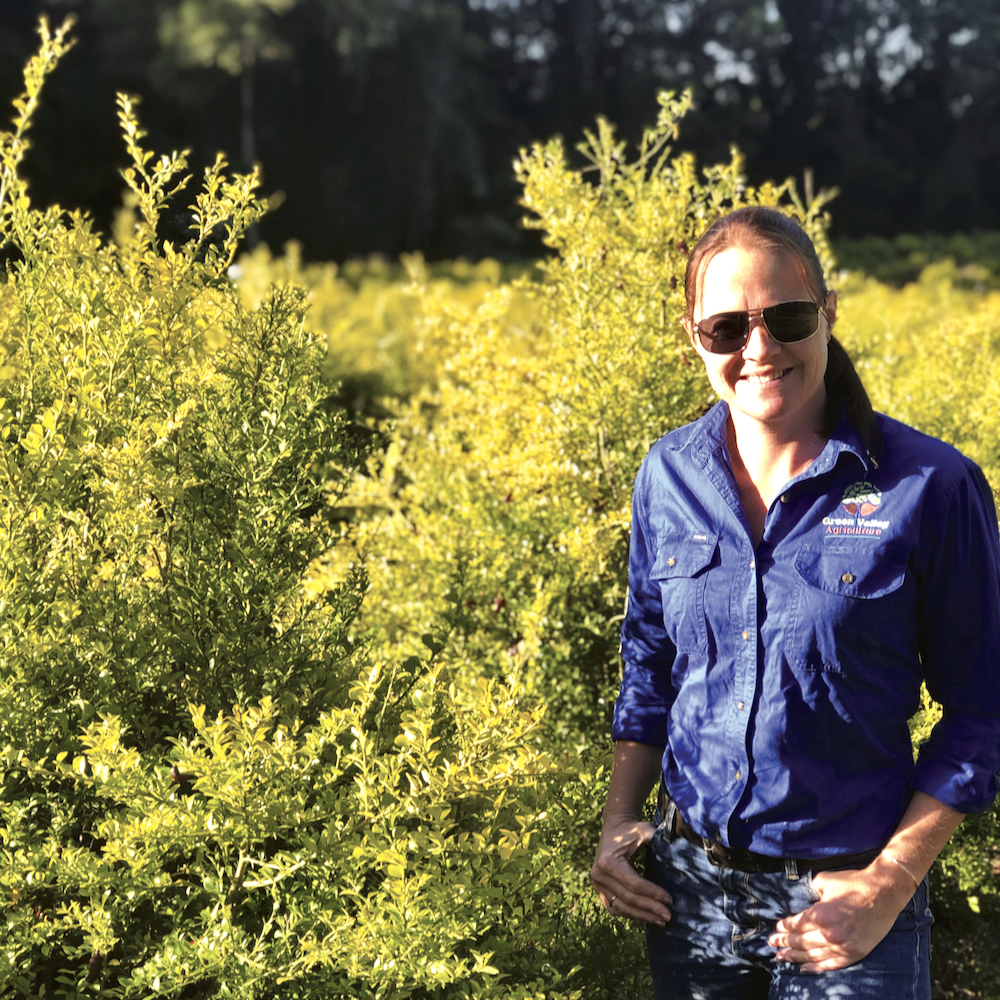When we think of farm diversification here in Canada, we usually imagine new crops or livestock, maybe some value-adding, or possibly some entry-level agri-tourism. How often, though, would you think of going after the top end of a luxury market?
Below, meet three farms that have successfully diversified their income streams by targeting luxury offers at some of the world’s most exclusive markets.
You said “finger limes?”
Read Also

Where convention and innovation meet
How one Ontario farm is integrating technology into their beef operation.
Jade King, a 2022 Nuffielder from Australia, operates Green Valley Farms located on Queensland’s Sunshine Coast. The farm raises Brangus beef cattle and Wiltipoll sheep, and they are also growers of seasonal fruits and vegetables, specializing in — wait for it — finger limes.
Finger Limes? If you haven’t heard of them before, you’re not alone. Finger limes are native to Australia, specifically to the rainforests on the country’s northeast corner.
Finger Limes are about the size and shape of a finger and have a caviar-like citrus flesh on the inside which pops in your mouth as you eat it.
Green Valley specializes in the Champagne Red — a native variety, of which King has 350 producing trees and about 500 recent plantings. “Not only is the Champagne Red native to the area,” King says, “it’s also highly sought after by chefs, and they keep longer, making them also ideal for export.”
That’s the upside. The downside — it takes determination to pick them because without gloves you’ll get sliced by the thorny bushes on which they bloom.

In 2020, King’s farm received some very prominent recognition when the country’s Network Ten television channel called. They were looking for five kilos of finger limes for use on MasterChef Australia. That proved a highlight for the show, and the beginning of a finger-lime renaissance, opening the door for marketing finger limes to high-end chefs all across Australia.
The fruit had previously been popular with Indigenous tribes who used it both for cooking and for medicinal purposes. Importantly, this also ties in with King’s personal brand and her background as an agronomist with an eco-friendly approach to healthy farming. (She also teaches agricultural science at her local school, and her students get hands-on on the farm, using portions of the land for agronomy plots.)
And, as it turns out, the marketing has been simple. Thus far, King hasn’t had to go looking for finger lime customers. Thanks to the publicity, they’re looking for her, and they’re bring their wallets. Prices range from $200 to $300 per kilogram.
“We started finger lime production in 2014,” says King. “We sell locally, nationally and internationally to restaurants and high-end food markets. We plan to keep planting more.”
But she also knows she must upgrade both her agronomic skills and her business strategy, which are always closely linked. Over the next two years, King will use her 2022 Nuffield scholarship to meet producers in Italy, Spain, Japan and the U.S. Says King, “Understanding the agronomics will help other Australian growers establish a quality standard for marketing internationally.”
A break on the farm side
It may still be winter in Canada, but imagine yourself vacationing on a farm near Dundee, Scotland. There, The Hideway Experience operated by Nuffielder Caroline Millar, her husband Ross and two teenage children, is anything but an ordinary farm.
It’s rather more of a five-star hotel, combining the seclusion of a self-catering lodge, the gourmet delights of a farmers market, and the services of a personal concierge.
Five of these luxurious hideaways are located on the family’s 650 ha beef and sheep farm, and hosting guests is in Millar’s DNA.
“I was brought up living and breathing agri-tourism on the family farm in Perthshire,” Millar says. “Both my parents and grandparents ran farmhouse bed and breakfasts in farmhouses near Caputh in Perthshire.”
Rated 5/5 on Trip Advisor, The Hideaway Experience is described as “Scotland’s “couples only” 5-star exclusive accommodation. No children, no groups, no stag parties, just 5-star luxury lodges located at the foot of the Sidlaw Hills in Angus, just north of Dundee.
Designed for complete privacy, rest, relaxation and fun, the hideaways have the layout and facilities of a luxury hotel suite. Guests can enjoy a dedicated spa room, outside hot tub, sauna, modern kitchen with a range of gadgets and top of the line appliances, double-sided fire and a cocktail bar. The hideaways also feature living roofs, and are powered by green energy.
Says Millar, “We opened The Hideaway Experience in 2005 on our family farm by converting a bothy (an old farm hut) into a couple’s retreat.
“We have since invested in three hideaways, and are about to build our fifth property. We employ six part-time and full-time staff and welcome 2,000 high-end visitors to Dundee and Angus each year. We also offer farm tours to visitors directly and via the travel trade and have plans to expand this area of our business.”
All of this doesn’t come cheap. Guest rates per night range between £360 to £475 with a minimum booking of two nights, yet the hideways are often booked out months in advance.
Millar credits her 2012 Nuffield Scholarship for opening her eyes to the agri-tourism sector internationally and the scale of agri-tourism in other countries.
“Although I travelled to 10 countries and was away from home for 16 weeks of the year, Italy and Austria remain, for me, two countries with a significant scale in this sector,” she says. With an emphasis on food and drink and focused on an intense agri offering with a real farmer at the heart of the customer experience, the Italian agri-tourism market has grown to C$2.5 billion. “This is what’s possible,” Millar says.
Besides the hideaways, Millar is involved with Go Rural Scotland, the Scottish Tourism Alliance and the National Farmers’ Union. She is also an international agri-tourism consultant and speaker and has done work here in Canada for the Culinary Tourism Alliance and Town of Essex in Ontario.
Making a business of Kangaroo Island
The Nuffield Scholarship is about gathering knowledge, and often that comes from the other scholars. Carly Bussenschutt, from Kangaroo Island in Southern Australia was a 2012 scholar along with The Hideaway Experience’s Caroline Millar.
Fast-forward a couple of years, and Millar’s hideways can be found as Bussenschutt’s “stowaways” on her farm half a world away from Scotland.

Islands offer unique experiences, and Kangaroo Island, slightly smaller than P.E.I., is no exception. It is a popular tourist destination known for its wild landscapes, fresh food, agriculture and native park lands.
A native Islander, Bussenschutt along with her husband Adam and their children manage 2,500 merino sheep, as well as two luxury “stowaways.”
“When I landed at Millar’s Hideaway Experience in Scotland during my Nuffield travels, I just knew it was exactly the kind of thing that I would love to create on our own farm,” she says.
“Creating a luxury, romantic couples break is at the heart of our business model, and we have worked hard to create a truly unique space, in a really cool location on a one-of-a-kind island.”
“The unexpected upside of our new venture is that as farmers we have learned the true pleasure of making people happy not just by producing food and fibre but providing a one of a kind experience you can’t really find anywhere else.”
The Bussenschutts currently run two stowaways —The Nest and Sleepy Hollow — and like Millar’s hideaways, they are rated five stars on Trip Advisor.
“I had an amazing time during my Nuffield travels and gained so much knowledge which has benefited my personal development and that of my family business beyond belief,” she says.
So what does a farm stay have to offer to the consumer to qualify for top-end accommodation fees? Millar conducted a survey with 200 of her own guests. Some of the results may surprise:
- The chance to escape the crowds, traffic, noise, to be alone and have space and fresh air.
- Starry skies, beautiful views, the natural environment, wildlife.
- Chance to wear coveralls, experience mud.
- Somewhere to help you feel better mentally.
- The chance to meet a farmer for the first time, see crops growing, see animals up close and learn about where food comes from.
- An authentic experience — not a standardized corporate experience.
- Access to the best produce, e.g. locally farmed/produced eggs, steaks, jam.
- Local know-how about the best places to eat, walk, things to make a holiday special.
- A farm tour, interested in geography, seasons, history, economics of farming.
Delivering a luxury farm product requires the greatest attention to detail. High-end consumers expect more, but farmers who can deliver that extra can benefit greatly.
Your field of dreams
Considerations for those looking to add an agri-tourism component to their farm
In Caroline Millar’s Nuffield report, entitled “Selling the Farm Experience,” she makes the following recommendations:
1. There is a market demand for agri-tourism from the public, which is willing to pay for a chance to experience interaction with a real live farmer.
2. The public is willing to pay for a chance to learn about how food is produced, the natural environment and life as a farmer.
3. Unlike Italy, in the U.K. this tourism product has not been developed in a significant way.
4. The successful key person in a tourism diversification was often not the farmer but a member of their family.
5. This person had particular attributes, most especially being a “people person.”
6. If you don’t like people, stick to sheep.
7. In terms of the impact on the farming family, successful farm diversifications:
• used all forms of physical and human capital within the family to drive the maximum return on investment from their farming business.
• allowed multiple generations in a family business to live and work from the same fixed land asset.
• facilitated management succession in the farming business.
• generated increased economic impact in their rural economies.
• collaborated with other businesses in a strategic way.
8. Farm tourism and leisure present a significant opportunity for farmers to connect with consumers, to drive demand for homegrown produce for local and international markets, and to make vital income.















